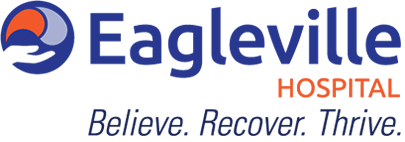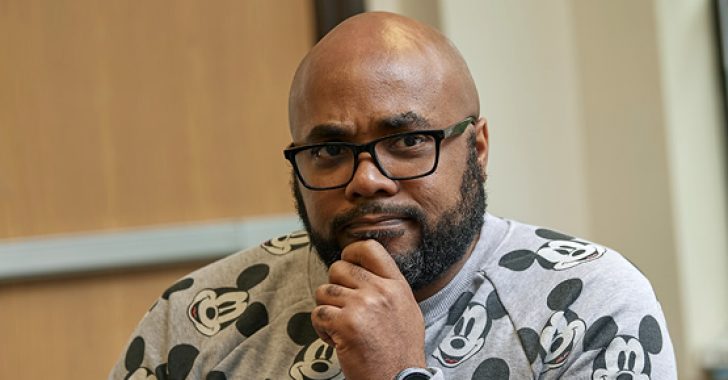Q&A with a Therapist: Life in Recovery
Therapist Charles Clark plays a key role in helping people successfully transition from Eagleville Hospital back to the community. He also works with the Family Seminar, an education program designed to inform patients’ family members about addiction and recovery.
We asked Charles to share some of the insights and advice he offers to people in recovery.
What are some of the misconceptions that people have about recovery?
Sometimes people believe the family’s role is more hands-on than it should be. One of the things we stress with family members is that they don’t have to set up controls for their loved one in recovery. As stressful as it may be to have a family member in recovery, it’s not their responsibility to keep their loved one sober.
We also stress with those in recovery that they need a strong network of support beyond their family. When we consider what can happen to a family over the course of an addiction, relying solely on family support can actually do more harm than good. We talk about building up multiple sources of “recovery capital.” That means finding multiple people who will provide objectivity and non-judgmental support.
How can alumni start building a network of support?
Recovery involves a complete lifestyle change. If possible, I recommend going to a halfway or recovery house instead of going right back into the world. If that’s not possible, a 12-step program or outpatient therapy (or both) can be helpful. The goal is to do as much as you can, as soon as you leave rehabilitation, to surround yourself with sober, healthy people who are going to be supportive of your recovery.
One tricky lifestyle change is finding healthy and engaging activities. The chaos that surrounds an addiction can actually be appealing, so it’s important to fill that void with healthy activities, sober peers, and quiet time.
Do people in recovery face new or different challenges than they did in decades past?
We talk a lot about changing your lifestyle to sustain recovery, and that can mean ending relationships that weren’t healthy. People in recovery will tell me they’re going to change their phone number and sort through their list of contacts in their phone. But social media gives other people immediate access to you. It’s not always as simple as deleting a number from your phone.
Of course, social media can be a positive thing, too. Before they discharge, patients often swap contact information or plan to connect through Facebook. Social media can be a positive tool in recovery, and it can be a complicating factor that requires extra diligence.
What do you say to people in recovery who are nervous about how their loved ones will treat them?
This is so common. People who go through something as traumatic as an addiction often want to please the people rooting for them.
But recovery isn’t a perfect process. I remind patients that there are going to be days where they’re not on point, where they have those thoughts. It’s important to share those things with the right people instead of keeping it all inside.
It’s really tricky. Sometimes family members and loved ones aren’t the right people to turn to. That’s why that network of support is so crucial: you need people who are going to be sympathetic but objective when things aren’t perfect.
How does recovery change when people talk through things instead of internalizing?
Our bodies have to get rid of waste, and serious damage can result if that doesn’t happen. It’s similar with the thoughts, memories, and feelings that come with recovery: those things need to be let out before they bleed into other areas of life.
How someone in recovery goes about letting things out is up to them. It’s not about the right process, it’s about finding that relief, that lightness that comes when you get something off your chest. In my opinion, it’s one of the most effective tools of recovery.
How do you suggest balancing the responsibilities of life with the work of recovery?
Just because you’re in recovery doesn’t mean the bills disappear. If you have to work 9 to 5, you can still head to an outpatient therapy appointment at 6 PM. Or you can go to a 12-step meeting at 7 PM. Or both.
And if that seems hard, imagine how difficult it feels to wake up in the morning feeling sick or hungover, hustle up money, find alcohol or drugs, and navigate that system all over again. Now that’s a long day.
Last but not least, what advice would you give to family members of someone in recovery?
People are blessed if they have supportive family members. But we want families to be part of the recovery, not in charge of it. When you see successes, validate that and be encouraging. When you see a need (like a ride to an appointment), offer to help.
Above all, maintain understanding. Relationships may change because of your loved one’s recovery. Activities and social gatherings that may be “family traditions” might be high-risk for the person in recovery. Or you might see the person in recovery less than you used to because their free time is now spent in meetings or therapy. The most important thing is to be understanding. Sometimes that’s what a person in recovery needs most.

